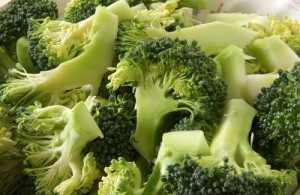How Important is Vitamin K for Your Body?

As we all know, vitamins play a very important role in our bodies. That’s why you should try to include as many foods rich in vitamins A, B, and C, as possible. Let’s not forget about all the other vitamins though. These are also extremely important and have their own set of powerful health benefits. Vitamin K is one we rarely hear about. How important is Vitamin K?
How important is vitamin K for the bones?
Vitamin K plays a huge part in healthy bones and is necessary for your bones to stay strong and resist diseases like osteoporosis, which affects a lot of women during menopause. Experts recommend that those at high risk of bone disease consume foods rich in Vitamin K.
Vitamin k and cancer
Some studies have shown that Vitamin K is very important in supplementing cancer treatment. Patients who have started cancer treatments are recommended to consume foods rich in Vitamin K, such as spinach and broccoli.
Effects of vitamin K on blood pressure
For those who suffer from high blood pressure, consuming foods with enough of this substance content could noticeably improve their symptoms. It might even reduce their blood pressure.
Improves vision
We all know that carrots are an essential food for improving vision, but not so many people are aware of how this vitamin benefits eye health. It’s highly beneficial in preventing diseases that affect these delicate and important organs.
Strengthens the brain
This vitamin is very important in what is known as cerebral function, good memory, motor skills, and concentration. These are all true signs of a healthy brain. This health is achieved through good nutrition, in which this vitamin plays a huge part.
Reduces risk of stomachache
If you suffer from stomachaches frequently, you may want to increase your consumption of this vitamin. Try to search for a wide variety of vegetables with it, and base your meals on them. Salads, juices, and soups will help you improve your health.
List of foods rich in vitamin K
So now we’ve gone over some of the benefits and properties of vitamin K. Now let’s take a look at which foods contain the highest amounts of this vitamin, so that your daily menu never lacks it. Remember that this isn’t just for the sake of your own health, but also for the health of your entire family.
- Avocado
- Celery
- Broccoli
- Lean meats
- Plum
- Brussels sprouts
- Kale
- Asparagus
- Spinach
- Figs
- Kiwi
- Milk
- Lettuce
- Lentils
- Turnips
- Peaches
- Leeks
- Tomatoes
- Grapes
Now that you know how good this vitamin is for your body, it would be wise to increase your consumption of foods rich in it. You’ll be helping to reduce your risk for certain diseases and medical conditions, for one. Also, it’s very important to remember that a diet rich in fruits and vegetables will help keep you healthy and full of energy.
All cited sources were thoroughly reviewed by our team to ensure their quality, reliability, currency, and validity. The bibliography of this article was considered reliable and of academic or scientific accuracy.
- Hamidi MS., Gajic-Veljanoski O., Cheung AM., Vitamin K and bone health. Journal of Clinical Densitometry, 2013.
- Ishizuka M, Kubota K, Shimoda M, Kita J, Kato M, Park KH, Shiraki T. Effect of menatetrenone, a vitamin k2 analog, on recurrence of hepatocellular carcinoma after surgical resection: a prospective randomized controlled trial. Anticancer Res. 2012 Dec;32(12):5415-20.
- Nimptsch K, Rohrmann S, Linseisen J. Dietary intake of vitamin K and risk of prostate cancer in the Heidelberg cohort of the European Prospective Investigation into Cancer and Nutrition (EPIC-Heidelberg). Am J Clin Nutr. 2008 Apr;87(4):985-92
This text is provided for informational purposes only and does not replace consultation with a professional. If in doubt, consult your specialist.








